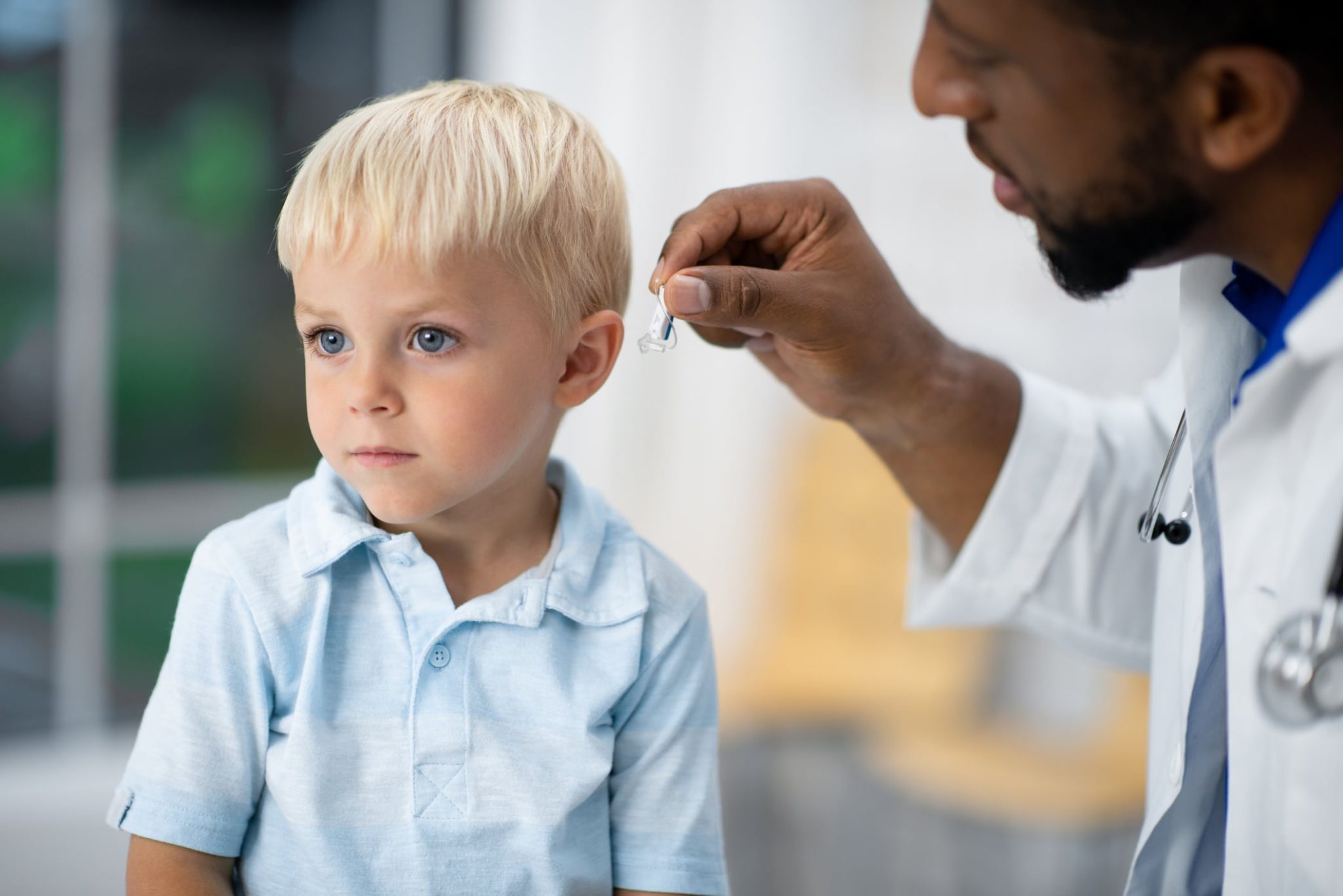The best treatment for any disorder or medical condition is contingent on an accurate diagnosis. Due to many overlapping symptoms, children with autism are often misdiagnosed with severe hearing loss or deafness. Being able to recognize the signs of hearing loss and autism spectrum disorder is key to ensuring your child is getting the early intervention they need. Continue reading to learn more about how to spot the difference between these two conditions.
Signs of Autism
Autism spectrum disorder (ASD), more commonly referred to as autism, is a developmental disorder caused by differences in the brain. Those with this condition often behave, interact, learn and communicate differently than other people. Emotional problems and fixations with repetitive behaviors are also common signs of this complex condition.
Most children with ASD begin to show symptoms before the age of three, with some showing symptoms as early as 12 months old.
Signs of Hearing Loss
Hearing loss can be present at birth (congenital) or develop later in childhood (acquired). Adults with hearing loss can communicate to their family, friends or medical professionals that they are having trouble following conversations or hearing in areas with a lot of background noise – young children have a harder time with this.
Common signs of hearing loss in children include:
- Not reacting to noise
- Mispronouncing words
- Ignoring others while they speak
- Listening to entertainment at an uncomfortably loud volume
Signs of Both Autism & Hearing Loss
Many of the signs of autism and hearing loss overlap. Some of the similar characteristics of these two conditions include:
- Lack of eye contact
- Echolalia (repeating words)
- Delayed language development
- Delayed social skills
- Social isolation
The Connection Between Autism & Hearing Loss
Children with hearing loss are more likely to experience a developmental delay than those with normal hearing. One in every 59 children with hearing loss has also been diagnosed with ASD. Because of this correlation, parents of children with pediatric hearing loss need to be on the lookout for behavioral abnormalities, as they may be symptoms of another condition.
Repetitive movements, such as rocking back and forth or head banging, lack of facial expressions, abnormal emotions, a lack of interest in other people and an unusual fixation on repetitive tasks are all signs of developmental differences, including autism.
If your child shows signs of a developmental disorder, you should connect with a professional as soon as possible. Autism support programs in Iowa and other local support groups are available.
If your child shows signs of hearing loss, early intervention is key. To learn more about pediatric hearing loss or to schedule an appointment with a pediatric hearing loss professional, contact Nelson Hearing Clinics today.
[related-posts]
